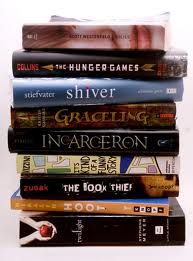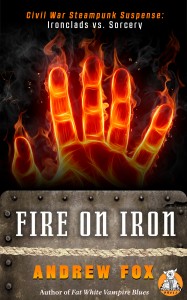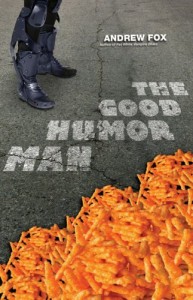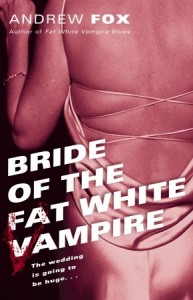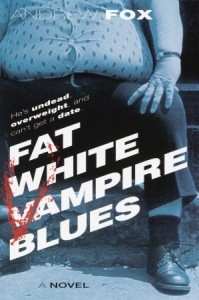The question of my title is of more than passing interest to me, as I take the plunge into writing children’s books and young adult novels in 2012. Whereas sales for adult fiction titles have remained flat or declined in recent years, a good bit of that slack has been recovered in sales of YA books, as two news articles, one from 2008 and the other from 2010, make note of:
From “YA Books Gaining Adult Readers: Genre Lines Blur Between Adult and YA Fiction” (June 26, 2008, Lisa Rufle Suite 101):
“YA Book Sales Increasing Despite a General Decrease in Overall Book Sales
“From a publisher’s standpoint, it is clear that YA books are selling better than their adult counterparts. According to the Book Industry Study Group, sales of YA books have increased by 23 percent since 1993 while adult book sales have decreased in the same time period by one percent. Clearly there are a lot of people reading and buying YA books, and for the publishers this is a good thing.”
From “Can a Young Adult Fantasy Possibly Be the Best Novel of the Year?!” (March 16, 2010, Chauncey Mabe, Open Page):
“Last week the Los Angeles Times reported the startlingly good news that while adult hardcover sales declined almost 18 percent the first half of 2009, sales of children’s and young adult hardcovers soared nearly 31 percent. Before we celebrate an explosion in teen reading, though, it’s worth noting that many of those books were bought and read by adults.”
It’s that last line of the second article that catches my attention. Any visitor to a bookstore within the last couple of years (including Borders Books and Music in their final, dying months) could not help but notice the vastly increased shelf space and more prominent placement given to YA fiction. Articles focusing on the bookselling industry teem with anecdotes of adults reading YA bestsellers, such as the Hunger Games Trilogy, on subways and buses. I have my own suspicions why this trend has been gathering momentum, but I wanted to survey opinion across the trade journals and blogs to see what other commentators had to say. Here’s a bit of what I found, starting with more from “YA Books Gaining Adult Readers: Genre Lines Blur Between Adult and YA Fiction:”
“With the popularity of the Gossip Girl, It Girl and the Clique series, young adult books are becoming more widely read by adults, for their racy content and unique style. … Everything from homosexuality, rape, abuse, self-mutilation, mental illness/suicide, eating disorders and any kind of addiction imaginable became plots or sub-plots of YA novels.”
“YA Books are the New Chick Lit
“It was only a few years ago when the genre of ‘chick lit’ (novels geared toward 20-something females) was all the rage. It was difficult to pass a bookstore or turn on the television without hearing about Bridget Jones’ s Diary, The Devil Wears Prada or Sex and the City. … So what is it about the YA genre that has adults and teens alike flocking the shelves for the latest book in the Gossip Girl series? Mainly because it fills a gap that ex-chick lit readers have been hungry for.
“Consider the subject matter disclosed in a large majority of popular YA fiction, most of it resembles at its core, the things that made chick lit and other adult fiction so popular: a mix of social and societal trends and a light, easy-reading appeal. Factor in the steamy R-rated scenes and it’s easy to understand the appeal YA has on a large audience.”
From “Young Adult Novels Heating Up the Charts: Publishers, Stores Embracing Trend” (November 16, 2011, The Boston Globe):
“It all began with the Twilight series, which has the first of its two final movie installments, The Twilight Saga: Breaking Dawn – Part 1, hitting movie theaters this weekend. The book ignited a publishing industry trend that continues to see adults purchasing books written for teens. … [P]ublishers have had to define YA and pinpoint why the best-selling titles appeal to more than just one generation. … [I]t’s not only about having a teen narrator or main character, it’s about having characters who live in the moment. In an adult novel, ‘You’re reflective about why you behaved the way you behaved.’ But in YA, there’s no need for that kind of accountability. As Winchester young adult writer Elaine Dimopoulos bluntly states, it’s about self-absorption. Dimopoulos, who was last year’s children’s writer-in-residence at the Boston Public Library, has long been a fan of the YA model. ‘There’s almost an egocentric feel to the book. You’re deep inside the protagonist’s head,’ she says, explaining the appeal. … [Cambridge writer M.T.] Anderson, 44, believes one of the myriad reasons his peers in Generation X started turning to YA is to escape their destinies. ‘We as a generation are having trouble coming to grips with being adults.’”
From “Why Adults Read Young Adult and Children’s Literature” (September 21, 2010, Kansas City infoZine):
“The phenomenon of adults reading literature targeted toward younger readers is nothing new, [Philip] Nel said. He pointed to Mark Twain’s The Adventures of Tom Sawyer and The Adventures of Huckleberry Finn, which were read by both children and adults when the books were published in the late 19th century. … Nel said this demanding characteristic of younger readers helps authors create some of the appealing qualities of young adult and children’s literature: attention to narrative, a powerful story, a sense of wonder, efficient story-telling and developed and credible characters. ‘I think in some ways literature for children can bring adults back to the pleasures of reading, because literature for children is much more connected to and invested in the pleasure of reading,’ Nel said. … ‘It’s not the “dumbing-down” of America,’ Nel said. ‘Children’s literature is always read by adults. They write it, edit it, market it, sell the manuscript for it. Children’s literature is universal.’”
From “Why Adults Should Read Young Adult Novels: The Top Five Reasons” (September 14, 2011, Bridgette Wagner, Yahoo! Voices):
Several of Wagner’s Five Reasons deal with enabling parents or those who work with teenagers to get a better perspective on how teens think and what sorts of issues they have to deal with, but it’s her fourth reason that resonates most with me:
“4. Many Times, These Books can be Easier to Read Through
If you are looking for a lighter, easier read, then a young adult book may be the best option for you. Depending on the genre and type of book you pick, you may find yourself with something quirky and fun, such as the ‘Mediator’ Series by Meg Cabot. Of course this isn’t true for all young adult novels, as many of them can be just as complex and thick as adult novels.”
These are all interesting explanations to ponder, and there is no reason why they can’t be simultaneously valid; social trends rarely are mono-causal. When I examine my own reading habits, I can track a definite change which occurred over my transition from a young single man to a married middle-aged man with three active children. When I was a single guy in my twenties, I could devote entire evenings and even full weekends to reading a novel, if I chose to (and I often did). I would take my latest big, thick novel or big, thick literary biography to lunch and dinner with me and to coffee shops in between meals, or sit on a park bench in nice weather and read for hours at a stretch. I was free to devote unbroken hours to devouring a text, giving it my full, undivided attention. The same remained true, to a somewhat lesser extent, when Dara and I were first married, but before Levi came along (it helped that Dara was also an enthusiastic reader).
When Levi was first born and I was helping with his feedings and spending a good bit of one-on-one time with him, I was still able to engage in a lot of intensive reading. During his first few months with us, I read all of the first volume of Shelby Foote’s massive three-volume history of the Civil War, and I have very pleasant memories of reading a couple of Barry N. Malzberg’s SF novels while sitting with Levi on our backyard swing, feeding him a bottle with one hand and juggling my book and mug of coffee with the other.
However, when Asher came along fifteen months later, I found my situation to be entirely different. Just as I had with Levi, I assisted with a lot of Asher’s feedings and spent a good deal of time with him on my lap. However, I also had Levi to deal with, and Levi had just started walking and running. Although I tried repeating my fondly remembered reading experiences while caring for Asher (at least starting the second volume of Shelby Foote’s trilogy), a few attempts made it clear this would be impossible — dividing my attention between the newborn on my lap and the toddler running around on the lawn and sticking twigs and bugs in his mouth meant there was no, absolutely no attention left over to devote to a book (not even a comic book). Judah joined the family twenty-two months later, and the demands on my attention became even more extreme. Putting the boys to sleep was a lengthy and enervating process, and more often than not I found myself with no focused consciousness left for reading at night (or I simply fell asleep in the boys’ bed). I spent almost five years doing hardly any pleasure reading at all.
Finally, this past summer, I cut the umbilical cord and made the boys start going to bed without my staying in their room with them. This freed up about an hour of reading time before I needed to go to sleep myself. As much as I missed the nightly physical closeness with my sons, I found this to be a delightful change and eagerly tackled many of the books I had put aside over the past half-decade. However, given that my newly freed-up reading time was much more limited than the unhindered, unrushed swathes of time I had formerly been able to devote to a book, I found myself judging which books I was willing to start in a different light. The big, thick books I had so blithely taken on in my twenties and thirties I now regarded with caution. After all, one of those eight-hundred-page behemoths could soak up a month or six weeks of my precious reading time. Also, given my increased family and work responsibilities, I might find myself needing to go a week or more without picking up a book, and if that book were overly convoluted or complex, I might lose the thread of the narrative in the meantime.
So I now choose any lengthy books very carefully, selecting only those I have an overwhelming desire to read. I mostly gravitate towards shorter novels, especially science fiction novels written between the 1950s and 1970s, when writers, aiming their novels at either paperback original publication or for serialization in one of the monthly magazines, kept their stories to under 75,000 words. This is a pleasing package for me in my current circumstances, in that I can finish a book in about five days and enjoy at least one complete reading experience per week.
I think the current offerings in the YA fiction field are satisfying many of the same reading needs which were once satisfied by the pulp fiction magazines of the 1930s and 1940s and the slim paperback originals of the 1950s through the 1970s, before massive books came into vogue. I suspect that many adults, particularly those with families or needing to work multiple jobs or engage in long commutes, enjoy reading for pleasure but find their available reading time chopped up into small, unpredictable chunks. They have neither the time, the focused attention, nor the energy required to fully engage with, say, the latest doorstop literary novel from Jeffrey Eugenides or Jonathan Franzen (and Mockingjay, the latest book in the YA Hunger Games Trilogy, handily outsold Franzen’s The Corrections in hardback). They may have given up reading fiction in favor of watching television or playing interactive computer games. But the emergence of a whole new genre of shorter, more tightly plotted, less discursive novels, featuring highly appealing protagonists faced with a host of (what were formerly considered) adult dilemmas seems to have brought a number of these lapsed readers back into the habit of reading for pleasure.
What do you think? Are any of you big readers of YA fiction (either fantastical or mundane)? Is it the shorter, more digestible length that appeals to you, or the adolescent protagonists, the more tightly focused plots, the salacious subject matter, or a combination of all the above?

